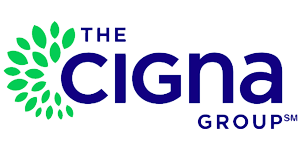Exploring Cognitive-Behavioral Therapy for ADHD: Strategies for Success
Aug 30, 2023

Introduction
ADHD (Attention-Deficit/Hyperactivity Disorder) is a neurodevelopmental disorder that affects both children and adults, making it challenging to focus, control impulses, and regulate hyperactivity. While medication is often used to manage ADHD symptoms, Cognitive-Behavioral Therapy (CBT) has emerged as a powerful complementary approach. In this article, we’ll delve into the world of CBT and explore strategies that can lead to success in managing ADHD symptoms.
Understanding Cognitive-Behavioral Therapy (CBT)
Cognitive-Behavioral Therapy is a structured, goal-oriented psychotherapy that focuses on identifying and modifying negative thought patterns and behaviors. In the context of ADHD, CBT aims to improve executive functioning skills, impulse control, time management, and emotional regulation. It equips individuals with practical tools to cope with challenges and build a more fulfilling life.
Key Components of CBT for ADHD
- Psychoeducation: Understanding ADHD is the first step. CBT helps individuals grasp the neurobiological basis of ADHD, reducing self-blame and promoting self-compassion.
- Behavioral Strategies: CBT encourages the development of specific behavioral strategies tailored to managing ADHD symptoms. These might include creating routines, setting reminders, and breaking tasks into smaller, manageable steps.
- Cognitive Restructuring: Negative self-talk can hinder progress. CBT teaches individuals to identify distorted thinking patterns and replace them with more realistic and positive thoughts.
- Skill Building: Executive functions like organization and time management are commonly impaired in ADHD. CBT helps individuals develop these skills through techniques like creating to-do lists, using planners, and practicing prioritization.
- Problem-Solving Skills: CBT equips individuals with the ability to identify challenges and brainstorm effective solutions, promoting adaptability in various situations.
Strategies for Success with CBT for ADHD
- Goal Setting: Establish clear, achievable goals. Break them down into smaller milestones to maintain motivation and a sense of accomplishment.
- Consistency: CBT requires practice. Consistently applying strategies, even when it feels challenging, is crucial for long-term success.
- Patience: Progress may be gradual. Celebrate small victories and stay patient with yourself throughout the journey.
- Mindfulness and Relaxation: Incorporate mindfulness techniques to enhance self-awareness and reduce impulsivity. Deep breathing exercises and meditation can aid in managing stress.
- External Support: Enlist the support of a CBT-trained therapist who specializes in ADHD. They can provide personalized guidance and strategies tailored to your unique needs.
- Lifestyle Factors: A balanced diet, regular exercise, and adequate sleep contribute to overall well-being and can positively impact ADHD symptoms.
- Self-Monitoring: Keep track of your progress. Journaling can help identify patterns, triggers, and areas that need further improvement.
Conclusion
Cognitive-Behavioral Therapy presents a valuable approach for managing ADHD symptoms and improving overall quality of life. By combining behavioral strategies, cognitive restructuring, and skill-building techniques, individuals can develop a toolkit to navigate the challenges posed by ADHD. Remember, success with CBT requires dedication, patience, and the willingness to implement these strategies consistently. If you’re considering CBT for ADHD, consulting a qualified mental health professional is a crucial first step toward your journey to a more focused and fulfilling life.
At Elite Mindful Health, we’re committed to providing you with the information and resources you need to thrive. If you’re interested in exploring CBT for ADHD or seeking expert guidance, don’t hesitate to reach out to our experienced team. Your journey towards improved well-being starts today.
In conclusion, if you’re interested in exploring the potential benefits of cognitive-behavioral therapy for managing ADHD and achieving success, it’s recommended to seek guidance from your doctor or a healthcare professional. When you’re ready to take proactive steps towards a more successful and fulfilling life with ADHD, schedule a free consultation with us. Our team is dedicated to supporting you on your journey. Click here to initiate your path toward success through cognitive-behavioral therapy.
Recent Blogs
-
 The Art of Relaxation: Creative Outlets for Easing Anxiety
The Art of Relaxation: Creative Outlets for Easing Anxiety -
 Overcoming Panic Attacks: Practical Tips for Regaining Control
Overcoming Panic Attacks: Practical Tips for Regaining Control -
 Cultivating Resilience: Building Coping Skills to Face Anxiety
Cultivating Resilience: Building Coping Skills to Face Anxiety -
 Nature Therapy for Anxiety: Connecting with the Outdoors for Healing
Nature Therapy for Anxiety: Connecting with the Outdoors for Healing -
 Social Anxiety: Strategies for Navigating Social Situations with Confidence
Social Anxiety: Strategies for Navigating Social Situations with Confidence -
 Nutrition for Nerves: Foods That Soothe Anxiety Symptoms
Nutrition for Nerves: Foods That Soothe Anxiety Symptoms -
 Cognitive-Behavioral Therapy for Anxiety: Rewiring the Anxious Mind
Cognitive-Behavioral Therapy for Anxiety: Rewiring the Anxious Mind -
 Mindfulness Meditation for Anxiety Relief: Techniques to Try Today
Mindfulness Meditation for Anxiety Relief: Techniques to Try Today -
 The Power of Breath: Using Breathing Techniques to Reduce Anxiety
The Power of Breath: Using Breathing Techniques to Reduce Anxiety -
 Exploring Herbal Remedies for Supporting Mental Wellness
Exploring Herbal Remedies for Supporting Mental Wellness








